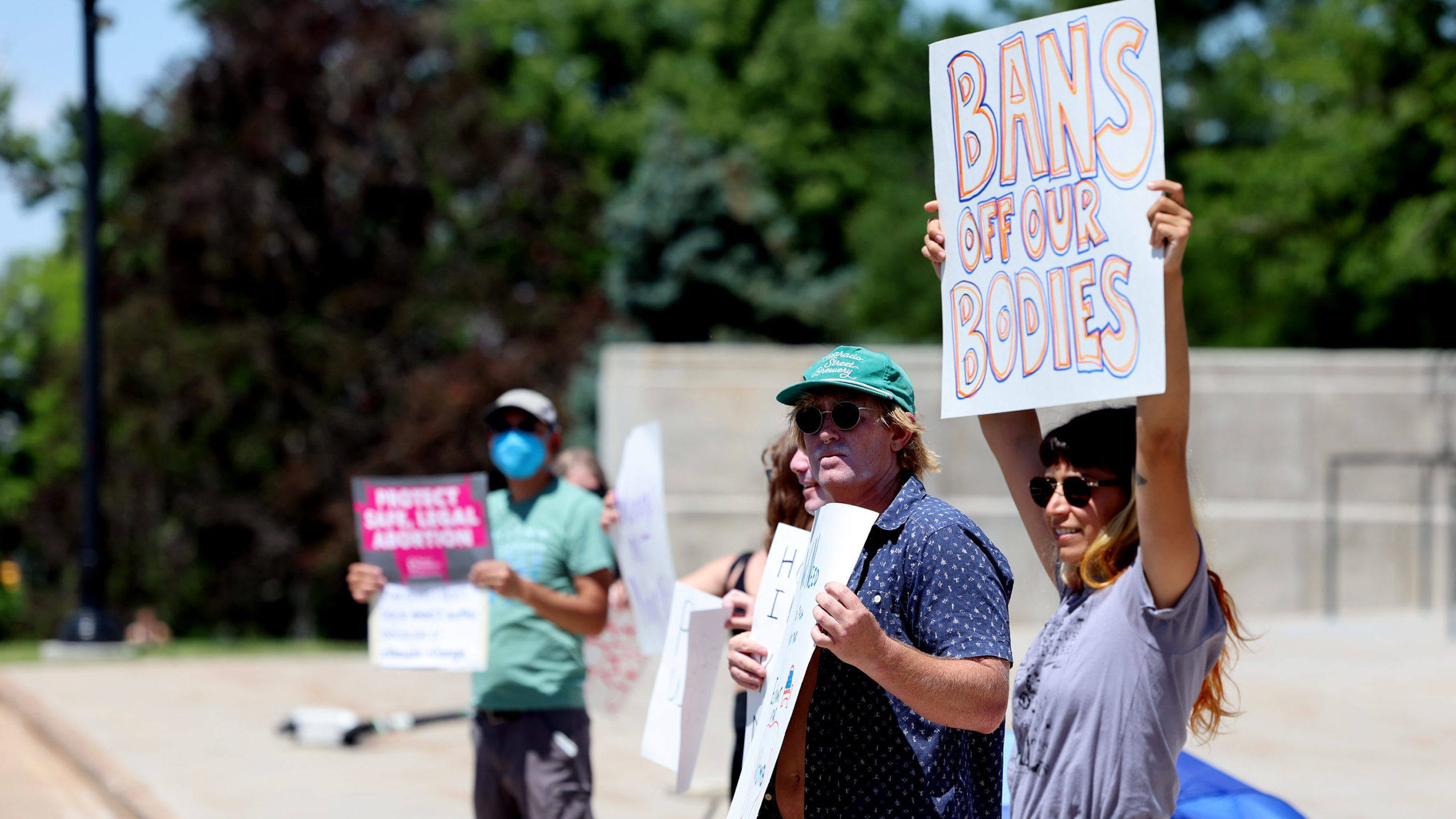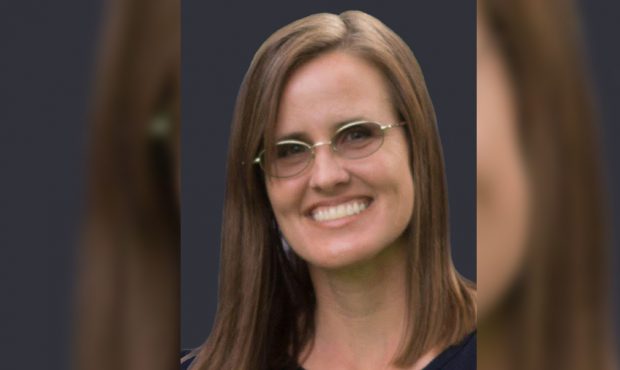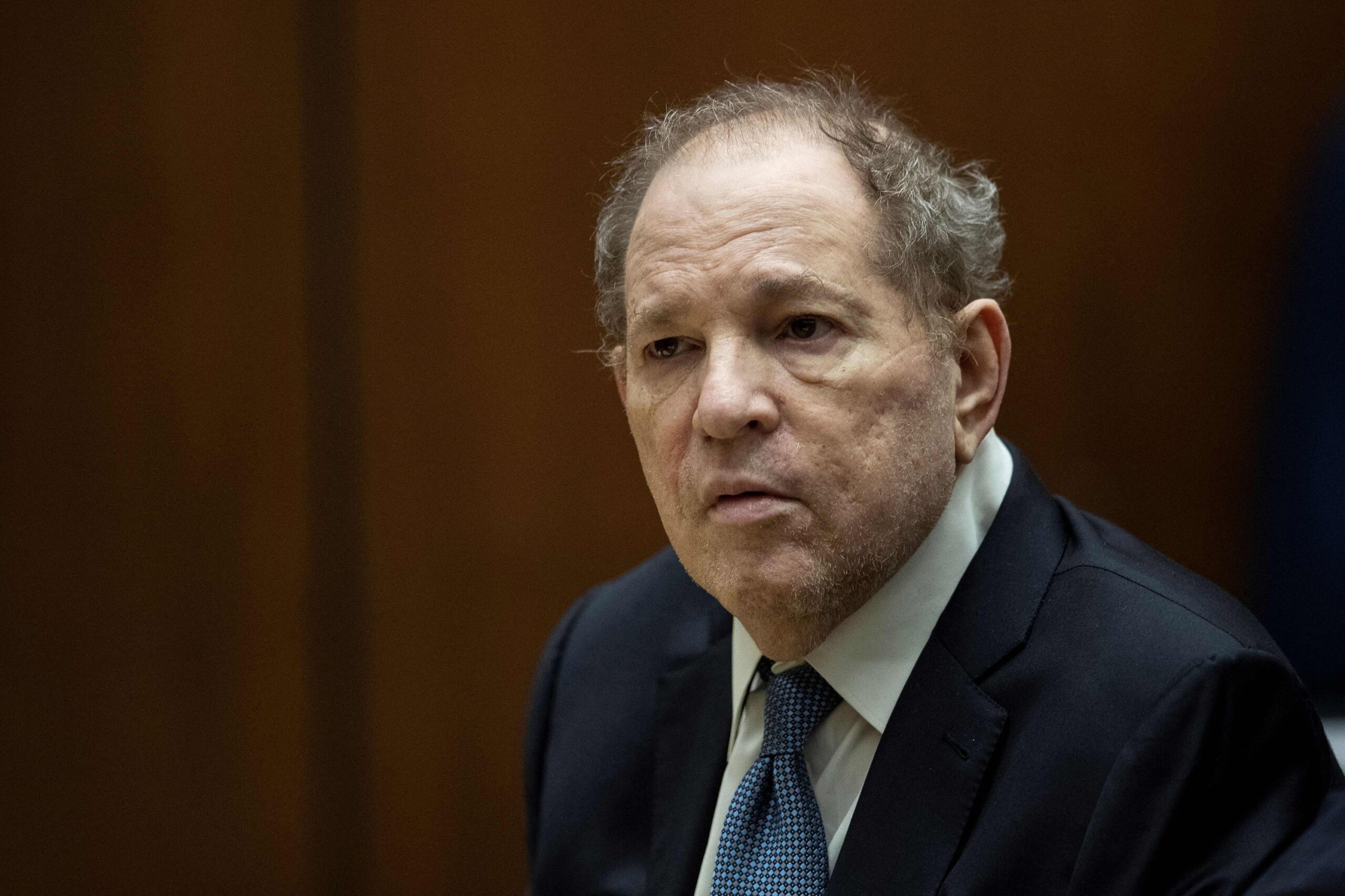Utah women’s reproductive-health doctor weighs in on Roe v. Wade ruling
Jun 24, 2022, 6:00 PM | Updated: Dec 30, 2022, 11:20 am

Protesters hold signs and chant at the Utah Capitol in Salt Lake City on Friday, June 24, 2022, as they protest the U.S. Supreme Court’s decision to overturn of Roe v. Wade. Health officials say they saw increased demand for contraception after the ruling. (Scott G. Winteron/Deseret News)
(Scott G. Winteron/Deseret News)
SALT LAKE CITY — With the US Supreme Court overturning the landmark 1973 Roe v. Wade and turned the decisions regarding abortion over to the states, which can now impose their own restrictions on abortion, how does this nationwide ruling affect doctors and nurses and other healthcare professionals in reproductive care?
Dr. Misha Pangasa, who is a board certified OBGYN in Salt Lake City, joined Tim Hughes and Greg Skordas to discuss the ruling and its ramifications for women.
“Now with Roe gone, we must be very clear: The health and life of women in this nation are now at risk,” President Joe Biden said Friday at the White House as reported by Bloomberg Law.
“Do you agree with the president, doctor, that women’s health is now at risk because of this ruling?” Tim asked.
“Absolutely. I agree with President Biden that this is a very heart-wrenching day as well as a terrifying day,” Pangasa said. “There is no doubt that this decision by the Supreme Court — essentially saying that people in positions of power have more rights to determine how individuals act upon their own bodies. This decision is certainly going to cause harm to people in America.”
Rape and incest exceptions
“We’ve heard from some of the legislators who enacted this law, that there are exceptions for rape and incest, but they require law enforcement reporting. You deal with a lot of people who are involved in sexual assaults. They’re often reluctant to go to law enforcement, aren’t they? Isn’t that going to create kind of an impediment?” Skordas asked.
- Rape is the most underreported crime; 63% of sexual assaults are not reported to police.
- Only 12% of child sexual abuse is reported to the authorities, according to National Sexual Violence Resource Center.
- Authorities estimate incest occurs in more than 10 percent of American families, yet only 20 percent of these offenses are reported. The crime often goes unreported because it is initiated by someone [whom] the child, usually a girl, loves and trusts, according to the US Department of Justice.
“Absolutely. One thing that anybody who works in the world of women’s health knows is that there are numerous obstacles and impediments to women actually reporting sexual assault,” Pangasa said. “The way that the law enforcement system has treated these women . . . the steps that they have to go through in order to bring this forward to law enforcement are often prohibited from them actually recording things.”
Doctors ‘heartbroken’ for patients
“Can you share with us some of the conversations that you have had within the medical field since this [Supreme Court’s draft opinion overturning Roe v. Wade] leak came out?” Tim asked.
“The conversations that are happening today is that we are heartbroken for the faces of the women and patients and families that we see. We are really terrified as to all of the implications that this decision has on women’s health in general,” Pangasa said.
“Let me ask you if the medical community’s terrified about another thing. We’ve heard from the legislators here that have spoken that they have no intent to punish, criminally or otherwise, a woman who seeks this procedure, which seems to imply that the medical community is in their crosshairs,” Skordas said.
“These kinds of strict restrictions create a lot of ambiguity in a world in which we base our decisions on science, and we base our decisions on what our patients need. Creating laws in this way is going to make people pause before they deliver life-saving care. It’s going to make people worry about what they can do,” Pangasa said. “. . . There is nothing more terrifying as a physician than watching someone suffer. And knowing that there’s maybe something you can do about it, but you don’t know if the law is on your side.”
Moving medical practices out of state?
“Do you think doctors will be looking at this [where abortion is still legal] in other states and move their practices because of some of these laws?” Tim asked.
“I certainly think so,” said Pangasa said. “People who are working in more restrictive states have decided that it’s the final straw in terms of being able to fight and try to care for patients in an atmosphere of fear. It is enough to actually drive many physicians away from states where they recognize that the law will not always be on the side of patient-centered, evidence-based compassionate care.”
Read more:













